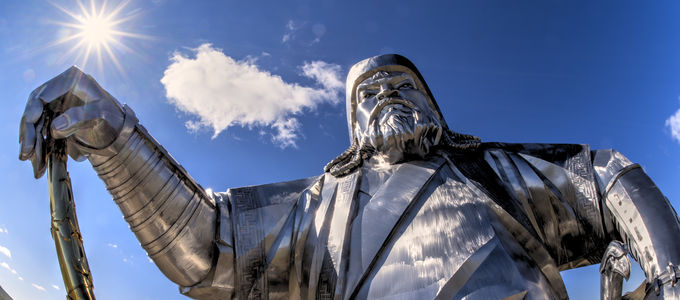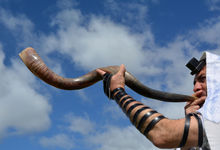Insubordinate teenager explains the future
Unruly and unwilling to integrate—that is how the young man presents himself—and almost ruins his chances with all the important people. And then he even misses out on an opportunity to show himself in a good light. A story with quite a few surprises.

The year was 605 BC, and King Nebuchadnezzar II was the ruler in the city of Babylon. Only a few weeks before, he was still waging battles as a successful general, while his father, Nabopolassar, founder of the Neo-Babylonian Empire, sat on the throne. Now his father was dead and Nebuchadnezzar was the regent of a world empire.
But the new king was not only a conqueror, but also a builder. He greatly expanded and fortified the city of Babylon, which his father had elevated to the level of a royal residence. He constructed many palaces, temples, and finally even an exotic stepped structure that later came to be listed in the catalogue of the Seven Wonders of the World: the Hanging Gardens of Semiramis. Nebuchadnezzar was a doer, and he was simply unstoppable.
Hostages with guaranteed welfare
At the same time, some 1,000 kilometres away in Jerusalem, lived Daniel and his friends Hananiah, Mishael, and Azaraiah. The well-educated young men, aged around fifteen or sixteen, were among the distinguished young Judeans who were swept off into captivity in Babylon by Nebuchadnezzar. Historians later came to describe this period as the “Babylonian exile”.
By no means did this mean the young men were condemned to bread and water, however. Instead, they were offered a broad education and some very good catering. The king did everything in his power to prepare them for service in the palace and the leadership duties associated with it. In so doing, he hoped to turn enemies into friends. After all, they wouldn’t bite the hand that fed them, would they?
Steadfast, rebellious
Daniel and his friends played along, but refused to participate in the local customs and conventions. The teenagers from Jerusalem declined the strong wine and the food from the king’s table, and instead insisted on water and vegetables. Even if this meant renouncing luxury, at least it allowed them to keep their religious dietary laws. And as if that were not enough: their lifestyle incorporated daily prayers and the practical application of the Torah. They could have made their lives easier—and would even have had a good excuse for adapting to the new customs. After all, they were living in exile.
Partnership—no matter what the cost
Their superiors at the king’s court did not give up, however. After all, the young men were promising candidates, and had to be integrated into their new society. Even the fact that all four of them had names that honoured Yahweh—the God of Israel—was conspicuously unpleasant. And without further ado, they were each given Chaldean names, and thereby integrated just a little further into Babylonian culture.
The name Daniel (“God is my judge”) was changed to Belteshazzar (“May Bel protect his life”), Hananiah (“Yahweh has been gracious”) became Shadrach (“I fear a god”), Mishael became Meshach (“I am despised, humble before my god”), and Azariah (“Yahweh has helped”) became Abed-Nego (“Servant of Nebo” [the son of Bel]). However, this did nothing to change the attitude of the four young men.
When dreams foretell the end
One day they were confronted with a life-threatening situation: Nebuchadnezzar II had a dream. And he required his wise men to not only tell him its meaning, but also to divine the dream itself. When this turned out to be impossible, the king threatened all of his advisers with death.
When Daniel learned of this—as the death penalty would also have applied to him—he negotiated some extra time with the king, which the latter also granted. Daniel then went to his friends, prayed to God in heaven—and that night received a life-saving vision that incorporated both the dream and its interpretation. The next morning, instead of playing himself up and showing off his own abilities, Daniel modestly explained that it had only been possible to solve this problem with the help of the God of heaven (Daniel 2: 27 et seq.).
The bad news leaves an impression
And then Daniel related the dream of the statue made of gold, silver, bronze, and a mixture of iron and clay that was crushed to dust by a stone rolling down from a mountain. At God’s instruction, Daniel interpreted the dream as an image of four successive world empires. The rock was Jesus Christ, who would one day bring all human kingdoms to an end. Nebuchadnezzar was impressed, praised the God of Daniel, and promoted Daniel and his friends to high positions.
Even 2,600 years later, the actions of Daniel give us pause to reflect.
- A life with God: Daniel and his friends found themselves in a heathen environment. It would have been an advantage—and would even have brought prosperity—to them to integrate themselves into their environment. Instead, however, they very conscientiously and diligently lived in accordance with the laws of God.
- Trust in the actions of God: even in his seemingly hopeless situation, Daniel remained calm, courageous, and devout—all the while keeping a clear head. He went to his friends and prayed to God together with them. That was his concept of life.
- Giving God the glory: Daniel did not take credit for any of his abilities. There was no self-praise, and he did not make himself the centre of attention. He made it unmistakably clear to the king that it was not he, but God alone, who is almighty. He could certainly have behaved differently—but he did not.
Photo: Frank Wagner - stock.adobe.com
Article info
Author:
Date:
Keywords:
Oliver Rütten
10.09.2019
Bible Study
, Divine service,
Doctrinal instruction












